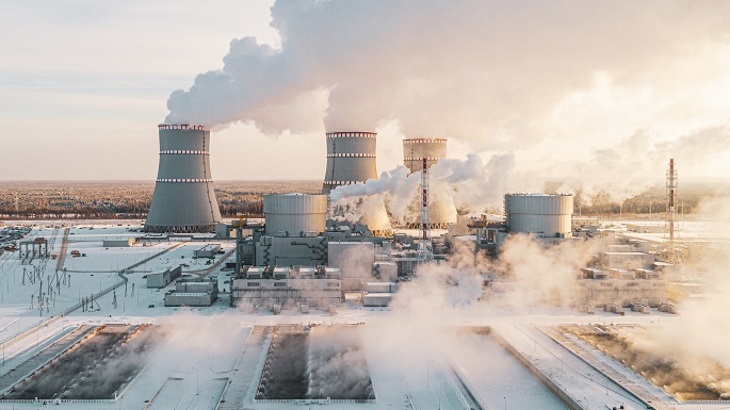The permit is valid for 15 years with Rosatom saying that in total about 150 buildings and structures will be erected at the site over the next few years, with the aim of getting to the stage of loading fuel into the new VVER-1200 reactors in 2029 and 2031 - the official timeline is then for them to enter commercial operation in 2030 and 2032, respectively.
To obtain the necessary construction licence, the application included documentation relating to the safety of the power units and confirming the readiness of the nuclear power plant, which is in Sosnovy Bor, for construction.
Vladimir Pereguda, director of the Leningrad plant, said: "We have proven that the construction of power units No.7 and 8 will be carried out in strict accordance with Russian norms and regulations in the field of the use of atomic energy, that construction and installation work will be provided with modern design solutions and sound, proven technologies, that the volume of work performed, cost compliance construction, the quality of purchased equipment, the quality of design and working documentation will be controlled by highly qualified specialists from among the nuclear plant employees. We are fully ready to begin large-scale work on the new stage of the Leningrad NPP."
Work at the construction site, which began in August 2022, has seen a pit prepared for the nuclear island and turbine island of the seventh unit.
The Leningrad nuclear power plant is one of the largest in Russia, with an installed capacity of 4400 MWe, and provides more than 55% of the electricity demand of Saint Petersburg and the Leningrad region, or 30% of all the electricity in Northwest Russia.
Leningrad 1 shut down in 2018 after 45 years of operation. Leningrad 2, also a 1000 MWe RBMK unit, started up in 1975 and was permanently shut down in November 2020. As the first two of the plant's four RBMK-1000 units shut down, new VVER-1200 units started at the neighbouring Leningrad II plant. The 60-year service life of these fifth and sixth units (also known as Leningrad II-1 and Leningrad II-2) secures power supply until the 2080s. Units 7 and 8 will replace units 3 and 4 as they are shut in the coming years.
Rosatom says that the new units will not only replace the existing capacity but will be able to meet growing demand and help large regional investment projects. The VVER-1200s are capable of load following, in contrast to RBMK units which only operate in baseload mode, which means running only at full power between refuelling and maintenance outages.





_13505.jpg)
_87975.jpg)
_67826.jpg)
_87695.jpg)





